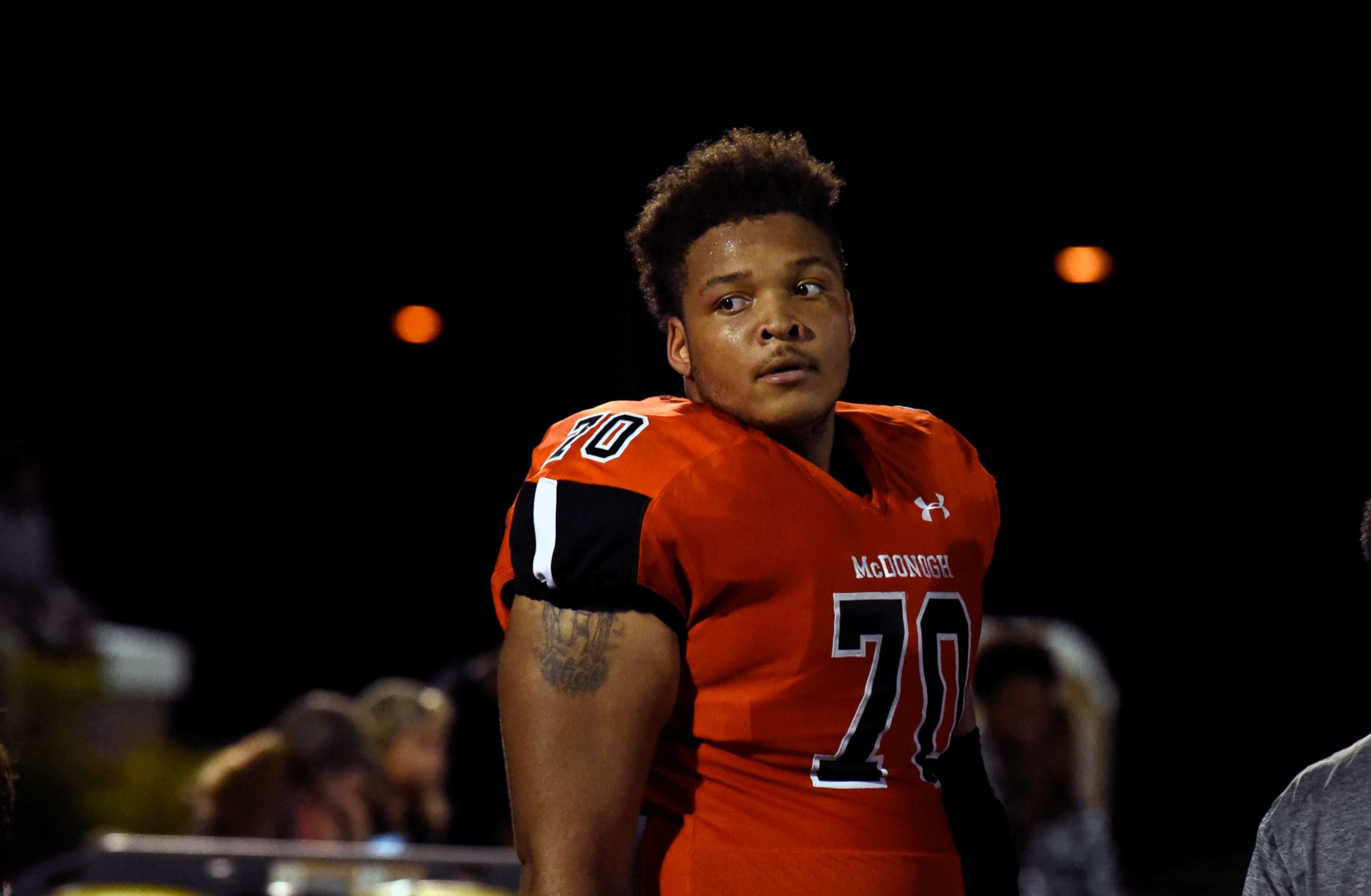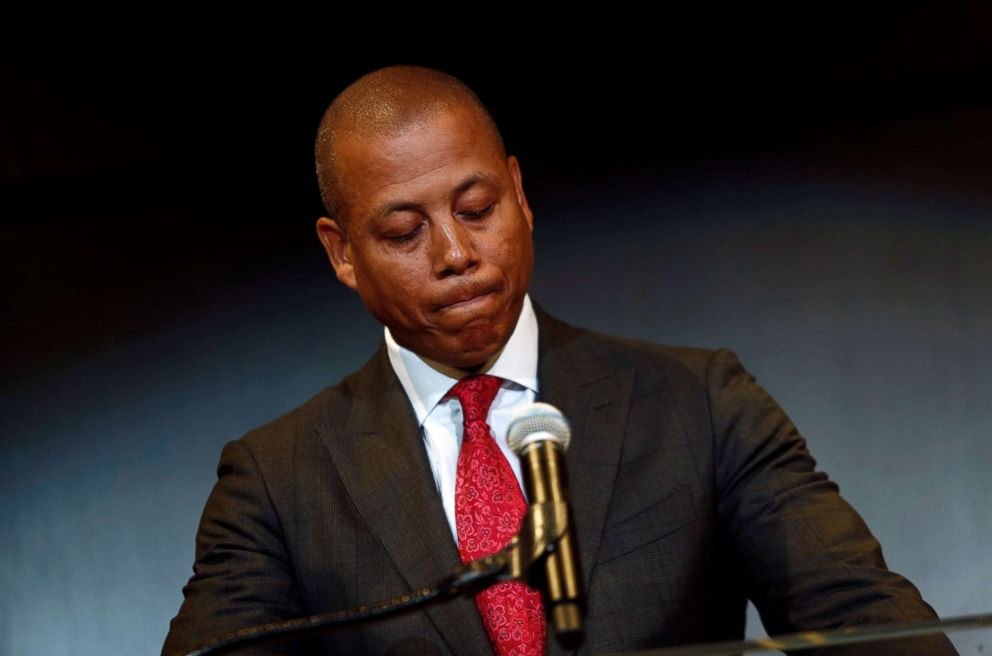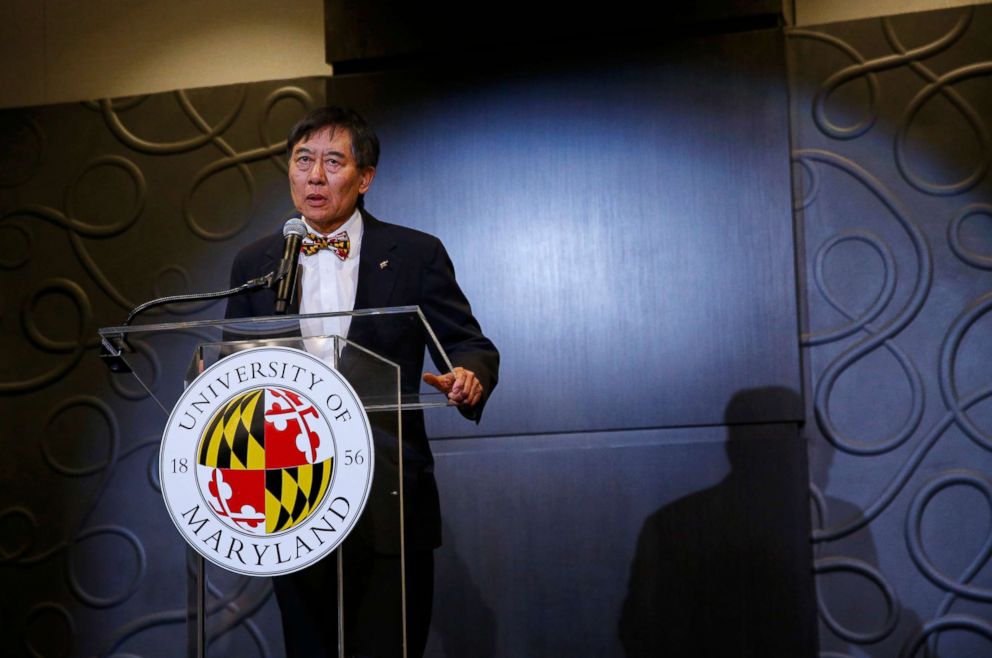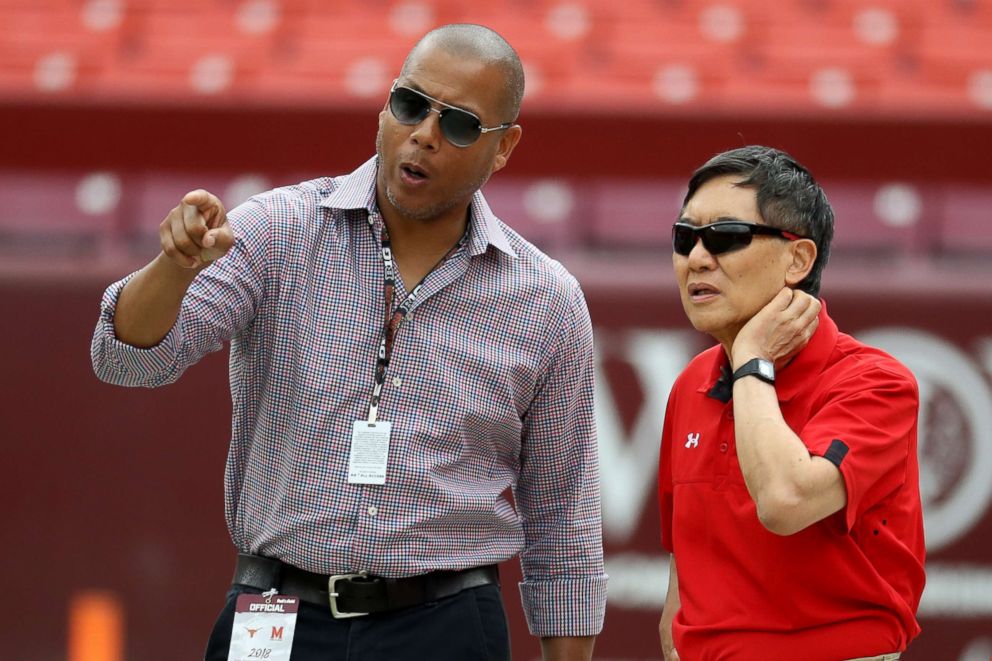Release of report into death of Maryland football player lacked 'sensitivity,' parents' lawyer says
A report into the death of a MD football player was released Friday afternoon.
The long-awaited release of a report commissioned by the University of Maryland into the death of one of its football players wasn't shared with the teenager's family until the night before it was publicly released, a lawyer for the teenager's parents said Saturday.
Hassan Murphy, who is representing the parents of Jordan McNair, said the family found out only through media reports that the report was going to be released Friday. Even then, it was only shared with them Thursday at 11 p.m. -- giving them little time to offer redactions or feedback, Murphy said.
“Jordan’s parents do not want to learn the details about what happened to their son by watching television tomorrow and seeing a press conference,” he wrote in the letter to the Board of Regents, which investigated the offensive lineman's death, Thursday night. “We expected more sensitivity to the McNair family’s rights, which are more important than any self-serving press conference you intend to hold.”

The report, the findings of which the university announced Friday afternoon, determined that mistakes were made on May 29, when McNair was hospitalized after a rigorous workout. After running 10 110-yard sprints with only minute-long breaks in between, McNair, 19, ultimately collapsed, the report found.
Soon after, as he was being transported to a field house and once he was inside, McNair began experiencing lower back tightness, cramping, hyperventilation and seizure. He also experienced a change in mental status and began yelling at his trainers, according to the report.
More than an hour after the onset of symptoms, a trainer called 911, the report found.
“There was the failure to identify escalating symptoms associated with exertional heat illness, including removing the athlete from the field, assessing vital signs, and identifying the condition and aggressively treating the patient's elevated core temperature.” the report said. “No apparatus was used for prompt cooling of the patient.”
There was a cold whirlpool that could have been used to immediately cool McNair down, according to the report, but trainers didn’t use it because of concerns over the “size of the student-athlete and the smaller stature of the athletic trainers providing care, there was fear of drowning."
Instead, "cooling was attempted with cold towels and ice packs,” the report found.
McNair died from heatstroke on June 13.
Dr. Rod Walters, a former college athlete and sports medicine consultant who led the investigation, shared his findings from the roughly month-long investigation during a press conference at Towson University’s West Village Commons Friday afternoon. The University System of Maryland Board of Regents, which took over the investigation in August, reviewed the report prior to the meeting.
In the report, Walters included recommendations, including adopting new technologies to monitor body temperature, implementing mandatory hydration testing, encouraging longer recovery breaks, and having more doctors and trainers present at games and practice.
Wallace Loh, the university's president, and Damon Evans, its director of athletics, said in a statement they had already begun implementing the recommendations.

The report confirms what university officials had already acknowledged. On Aug. 14, Loh said the university “accepts legal and moral responsibility for these mistakes,” and that he had personally met with McNair’s parents to apologize for how everything was handled.
But James Brady, the Board of Regents' chairman, said he'd like to "know what the facts are before we make any conclusions" about the school taking moral and legal responsibility.

Murphy said McNair's parents were alarmed by what they perceived as the school walking back on its responsibility.
“The family was and continues to be devastated by the loss of their son,” Murphy told ABC News. “They were initially gratified somewhat by Dr. Loh’s acceptance of responsibility on behalf of the university for Jordan’s death.
"Since the Board of Regents took the investigation over, there has been no contact, no cooperation, and yesterday they were disgusted by Mr. Brady’s walking back of that acceptance of responsibility," he added, referring to James Brady, the Board of Regents' chairman. "If the goal is to escape culpability, then we'll force their hand in court. It's obvious from the facts that we know that they are legally and morally responsible."
The school said it was awaiting the findings of another independent report and the results of an investigation by an 8-member commission into the culture of the football program. Those findings and recommendations will go the Board of Regents, which will then "make whatever decisions necessary to safeguard the wellbeing of our students," Loh said in a release posted on the school's website.
A spokesperson for the university system also said it has been transparent with McNair's parents.
“The USM Board of Regents is committed to finding the facts related to the circumstances of Jordan McNair’s tragic death," the spokesperson said in a statement. "The USM first received the report Thursday evening and the USM Board of Regents was first briefed early Friday afternoon.

"The board had long planned to share the report with Mr. McNair’s family prior to releasing publicly," the statement continued.
Beyond the timing of the report's release, McNair's parents worried about private medical information about their son being shared with the public without their consent, Murphy said.
In the end, McNair's parents green-lighted the release of the findings, Murphy said. But he added that it's their hope that the report triggers a larger conversation about the safety of student-athletes.
"Jordan’s parents strongly feel that it is the broader conversation regarding the health and safety of student-athletes which is most important," Murphy said. "That conversation should -- and must -- begin in earnest with this report."




